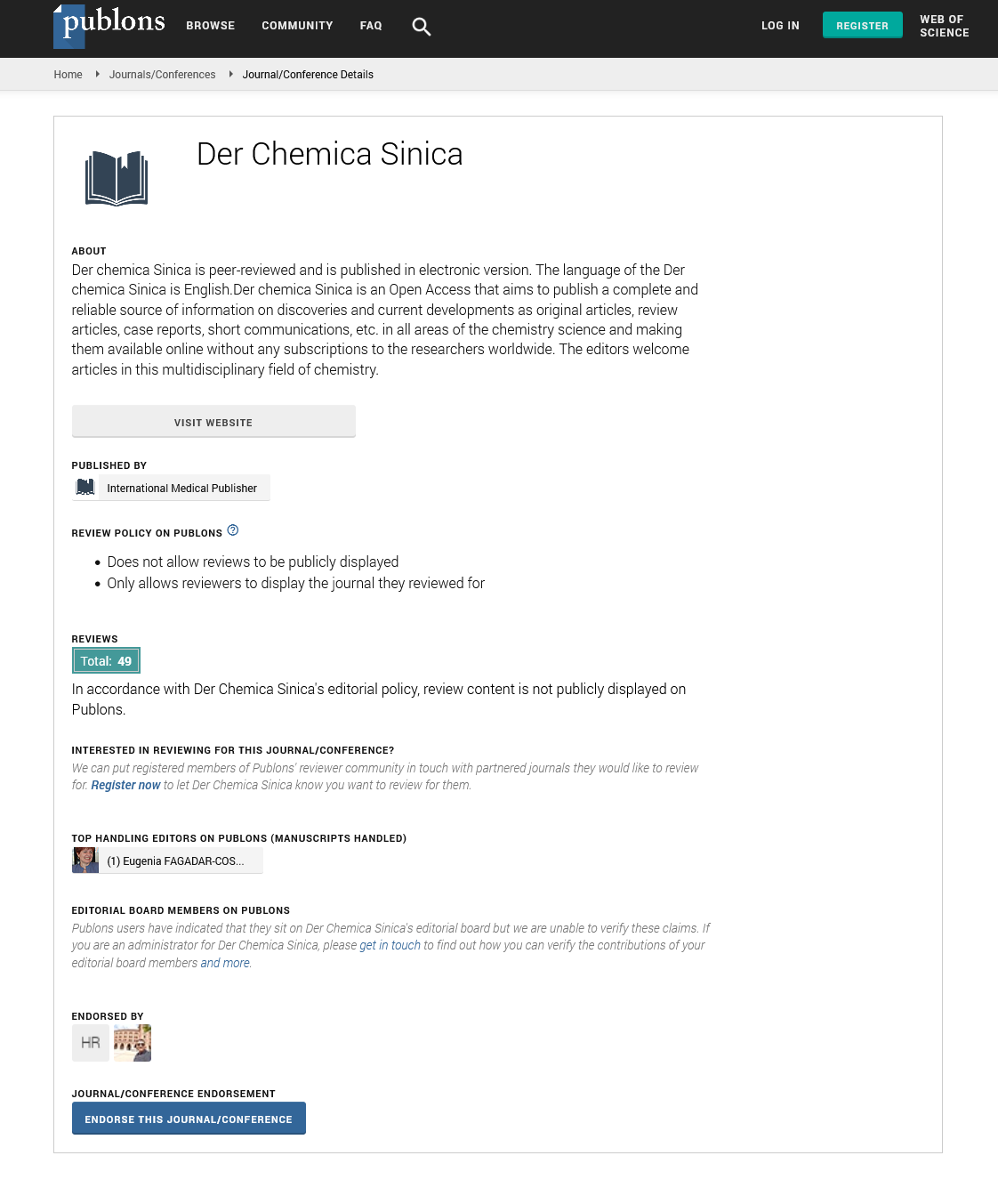ISSN : 0976-8505
Der Chemica Sinica
Abstract
Physical and chemical evaluation of oils from selected underutilized oilseeds
Oils were solvent-extracted from castor bean seed (Ricinus communis L.), African oil bean seed (Pentaclethra macrophylla Benth), African locust bean seed (Parkia filicoidea Welw), and “egusi” melon seed (Citrullus vulgaris L.) which are among the lesser-known underutilized oilseeds existing both as wild and cultivated types in rainforest areas of West tropical Africa. The oils were subsequently evaluated for some physical and chemical properties. The percentage oil yields were as follows: castor bean 42.22± 0.51%, African oil bean 43.75± 0.85%, locust bean 20.68 ±0.71 and “egusi” melon 45.52 ±0.82%. These values are indicative of the high potentials of the seeds for viable commercial vegetable oil production. The results of refractive index for all the oil samples were within the range 1.452 – 1.464 which is a clear indication of their relative purity. Specific gravity values fell within the range obtained for other vegetable oils. Locust bean seed oil with high saponification value (358.69mg/g) contained low molecular weight fatty acids and may not be useful in soap making. The results of peroxide value determination revealed that melon seed oil could easily be disposed to rancidity compared to the other oils evaluated. The acid values (1.80 -2.83mg/g) were within the range commonly reported for most unrefined vegetable oils. It is expected that refining the oils would reduce their predisposition to rancidity.
Author(s): Justina Y. Talabi and Victor N. Enujiugha
Abstract | PDF
Share This Article
Google Scholar citation report
Citations : 6019
Der Chemica Sinica received 6019 citations as per Google Scholar report
Der Chemica Sinica peer review process verified at publons
Abstracted/Indexed in
- Google Scholar
- Open J Gate
- Genamics JournalSeek
- China National Knowledge Infrastructure (CNKI)
- Directory of Research Journal Indexing (DRJI)
- Publons
- MIAR
- International Committee of Medical Journal Editors (ICMJE)
- Serials Union Catalogue (SUNCAT)
- Geneva Foundation for Medical Education and Research
- Secret Search Engine Labs
- Euro Pub
- CAS (Chemical Abstracting Services)
- University of Barcelona
Open Access Journals
- Aquaculture & Veterinary Science
- Chemistry & Chemical Sciences
- Clinical Sciences
- Engineering
- General Science
- Genetics & Molecular Biology
- Health Care & Nursing
- Immunology & Microbiology
- Materials Science
- Mathematics & Physics
- Medical Sciences
- Neurology & Psychiatry
- Oncology & Cancer Science
- Pharmaceutical Sciences
